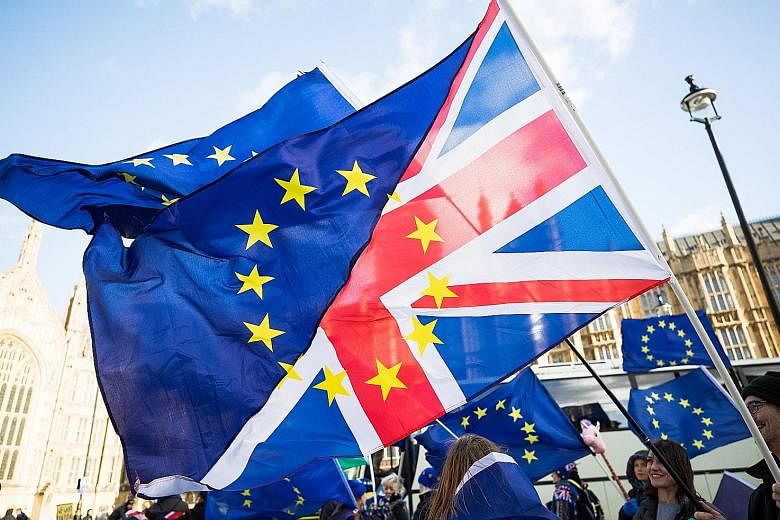Facebook is launching an investigation into whether Russian propagandists coordinated a disinformation campaign around the 2016 Brexit vote.
In a letter dated Jan 17 to the head of a British parliamentary committee on digital affairs, Facebook's policy director Simon Milner wrote: "We are committed to making all reasonable efforts to establish whether or not there was coordinated activity similar to that which was found in the US."
Facebook plans to launch a "detailed analysis of historical data" which could take some weeks.
The social media behemoth, which has more than two billion users, is coming under pressure as reports emerge of social media being used as a Trojan horse for political propaganda designed to manipulate the public.
Last year, United States lawmakers criticised Facebook, Twitter and Google for failing to prevent Russian manipulation on their platforms during the 2016 presidential election.
In the Brexit case, an earlier investigation by Facebook found no such evidence, but critics said it had not been adequate in scope.
On Jan 10, a report to the US Senate's Committee on Foreign Relations said Facebook had limited investigation to only one "troll farm" within a "larger disinformation ecosystem" in St Petersburg, Russia's second-largest city.
A 2015 New York Times investigation found a troll farm called the Internet Research Agency, which employed hundreds of Russians who worked in shifts focused on different social media platforms aimed at foreign countries.
The 195-page Senate report titled "Putin's Asymmetric Assault on Democracy in Russia and Europe: Implications for US National Security" detailed other instances of Russian influence in democratic processes in Europe.
"The problem of foreign influence is profound, complex and growing," Dr Patrick Cronin, senior director of the Asia-Pacific Security Programme at the Centre for a New American Security (CNAS), told The Straits Times.
"Revisionist-minded major powers are poised to threaten the sovereignty and institutional integrity of other governments and societies," he said.
"If the Russian government insists on trying to thwart fair elections, then it must not be surprised by a strong international response."
Facebook and Twitter are facing restrictions in other parts of the world, often from governments.
Fake news, cyber bullying and Internet addiction have become issues for users and governments.
Both websites are banned in China. Thailand has also pressured Facebook to delete content critical of the country's royal family.
On Oct 1 last year, a new network enforcement law - commonly called the "Facebook Law" - gave the German government the power to fine social media platforms with more than two million registered users. These would include Twitter, YouTube, Instagram and Reddit, which could face fines of up to €50 million (S$81 million) for leaving "manifestly unlawful" posts up for more than 24 hours.
"Social platforms have made it cheaper and easier to reach a larger audience," Dr Kalev Leetaru, senior fellow at the George Washington University Centre for Cyber & Homeland Security, told The Straits Times.
"You can micro target advertising, run an ad to match a precise demographic across the entire country very cheaply and instantaneously and nobody else outside that demographic reads the ad."
Facebook announced last week that it will deprioritise news and reprioritise connections, taking the platform a step back to its origins.
But ultimately it is reacting to pressure, Dr Leetaru said.
"Once Germany passed that law, Facebook hired several hundred more reviewers just for Germany," he pointed out.
"As a publicly traded company they don't do anything out of the goodness of their heart. The reality is... it comes down to numbers and they are reacting to pressure."
But deprioritising news risks propagating echo chambers, in which only like-minded friends and families cluster with even less access to alternative information than before, he cautioned.
"In terms of Russian interference, the Russian government has become very adept over the years at information warfare, using the power of information," he said.
But the real effect of Russia's interference is not clear. It could be interfering simply by creating the perception that it was interfering.
Said Dr Leetaru: "You create an environment in which you can no longer tell what's real and what's not."

